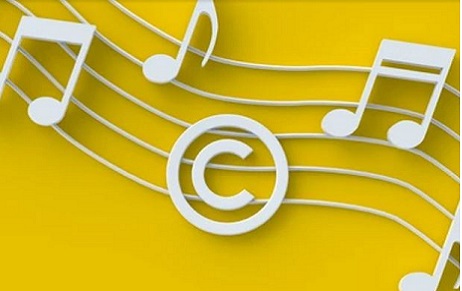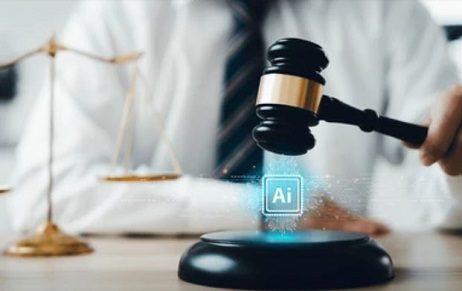Any successful café, restaurant, or retail establishment's environment is greatly influenced by its music. It…
Online Copyright Infringement and Its liability Upon Intermediary
- Copyright is a bundle of rights which is meant to encourage creativity. In ancient days creative persons worked for fame and recognition rather than to earn a living, thus, the question of copyright never arose. In the last four decades modern and advanced means of communication like broadcasting, litho-photography. Television, websites contents etc have made the Copyright Act an important act to deal with possible problems of ownership and infringement on such rights
- Copyright rights prohibit others from using the copyrighted works. The traditional concept of the copyright has undergone a drastic change due to advent of the new technologies; its scope has extended manifolds. Now, the modern law of copyright encompasses musical works, cinematograph works, computer programs, performer’s rights, broadcasting rights.
- The Copyright Act today has also to deal with business models which are growing over the internet wherein the users are participating actively and thereon the companies are earning solely on the basis of the internet services by facilitating users to share their contents which are attractive (which includes pictures, motion pictures, films, songs, graphics, trailors, private communications amongst the eminent personalities, scam disclosures etc) so as to make it common to all and enabling them to view it easily by sitting at home.
- Thus it has becomes necessary that the Copyright Act also deals with problems of online copyright infringement and other related aspects. Though no specific reference has been made with this aspect, but the amended provisions of the Copyright Act tries to deal with some practical problems and including the inclusion of fair use policy and other aspect of transient and incidental storage of work or performance or for providing links for such links.
- The relevant provision for Copyright Infringement is reproduced herein below:
Section 51. When copyright infringed. -Copyright in a work shall be deemed to be infringed-
(a) when any person, without a licence granted by the owner of the copyright or the Registrar of Copyrights under this Act or in contravention of the conditions of a licence so granted or of any condition imposed by a competent authority under this Act-
(i) does anything, the exclusive right to do which is by this Act conferred upon the owner of the copyright, or
(ii) permits for profit any place to be used for the communication of the work to the public where such communication constitutes an infringement of the copyright in the work, unless he was not aware and had no reasonable ground for believing that such communication to the public would be an infringement of copyright; or
(b) When any person –
- makes for sale on hire, or sells or lets for hire, or by way of trade displays or offers for sale or hire, or
- Distributes either for the purposes of trade or to such an extent as to affect prejudicially the owner of the copyright, or
- By way of trade exhibits in public, or
- Imports [***] into India,
any infringing copies of the work:
[Provided that nothing in Sub-clause (iv) shall apply to the import of one copy of anywork, for the private and domestic use of the importer.]
Explanation – For the purposes of this section, the reproduction of a literary, dramatic, musical or artistic work in the form of a cinematograph film shall be deemed to be an “infringing copy.
- From the bare reading of the Section 51, it becomes apparent that the infringement is, doing of any act by a person who is not authorized by the owner, which the owner is conferred to do under the provisions of the Act or permitting any place for profit for infringement of the copyright is also an infringement under the Act. The said two provisions are disjunctive in as much as that there shall be an infringement even if the acts are done which are of the owner or in the alternative the acts of permitting any place for profit.
- In view of the same and also the fact that the provision provides for permitting “any place“ which itself is loosely worded and is unfettered by any qualification, the said words “any place” have to be construed widely so as to include the place at the webs page or internet in order to give effect to the provision to be operative in cases of newer kind of the infringements being caused at the web space.
- Thus the Copyright Infringement includes the online infringement and any one can sue for the infringement of copyright based on the web pages or web contents including websites & mobile Application.
- However there is no reference to such business models i.e. network service providers, internet services providers, web-hosting service providers under the Copyright Act. The business model was such that made them susceptible to various liabilities. There was no explicit provision covering their right. They are commonly known as Intermediaries as is specifically defined under The Information and Technology Act, 2000.
- Intermediary has been defined under Section 2(w) of the IT Act,2000 “Intermediary” with respect to any particular electronic records, means any person who on behalf of another person, receives, stores or transmits that record or provides any services with respect to that record and includes telecom service providers, network service providers, internet services providers, web-hosting service providers, search engines, online payment sites, online-auction sites, online-market places and cybercafés”.
Status of Intermediary and protection provided under IT Act, 2000
- The Information Technology (Amendment) Act, 2008 brought a needed relief to the Intermediaries as Chapter XII of the act, provided for the exemption from liability to the Intermediaries. In exercise of the powers conferred by clause (zg) of subsection (2) of section 87 read with sub-section (2) of section 79 of the Information Technology Act, 2000 (21 of 2000), the Central Government vide gazette Notification dated 11th April,2011 published the Information Technology (Intermediaries guidelines) Rules, 2011.
- Section 79 of the Information Technology Act, 2000: Exemption from liability of intermediary in certain cases.—
(1) Notwithstanding anything contained in any law for the time being in force but subject to the provisions of sub-section (2) and (3), an intermediary shall not be liable for any third party information, data, or communication link made available or hosted by him.
(2) The provisions of sub-section (1) shall apply if—
(a) the function of the intermediary is limited to providing access to a communication system over which information made available by third parties is transmitted or temporarily stored or hosted; or
(b) the intermediary does not—
(i) initiate the transmission,
(ii) select the receiver of the transmission, and
(iii) select or modify the information contained in the transmission;
(c) the intermediary observes due diligence while discharging his duties under this Act
and also observes such other guidelines as the Central Government may prescribe in this behalf.
(3) The provisions of sub-section (1) shall not apply if—
(a) the intermediary has conspired or abetted or aided or induced, whether by threats or
promise or otherwise in the commission of the unlawful act;
(b) upon receiving actual knowledge, or on being notified by the appropriate
Government or its agency that any information, data or communication link residing in or connected to a computer resource controlled by the intermediary is being used to commit the unlawful act, the intermediary fails to expeditiously remove or disable access to that material on that resource without vitiating the evidence in any manner.
Explanation.—For the purpose of this section, the expression “third party information” means any information dealt with by an intermediary in his capacity as an intermediary.
- The Act clearly provided that to seek protection under section 79 it was mandatory for the intermediaries to observe due diligence as provided by the Information Technology (Intermediaries guidelines) Rules, 2011. Thus it is mandatory for the Intermediaries to follow such due diligence to seek protection/ exemption under the IT ACT, 2000.The exemption provided under Section 79 read with the Information Technology (Intermediaries guidelines) Rules, 2011 clearly is similar to the provision of DMCA’s (Digital Millennium Copyright Act) safe harbours for online service provider.
- However the Amendment and the understanding of the said Section received a set back by the Judgement of Hon’ble Delhi High Court in the matter of Super Cassetes Industries Ltd Vs My Space Inc[1], which had led to the confusion over the protection given to the Intermediaries under the IT ACT, 2000. That the Hon’ble Court while giving a Prima Facie view on the Injunction had come to the conclusion that that the provisions of Section 79 of The Information Technology Act, 2000 will have no bearing on the liability of infringement of Copyright because of the proviso provided under Section 81 of the Act. The protection given to the Intermediaries with respect to copyright and patent infringement cases has been taken away by considering the provisions of Section 79 of the Act read with Section 81 of the Act.
- Thus intermediary can be sued for online infringement of copyright content despite given an exemption under Section 79 of The Information Technology Act, 2000. The interpretation of Section 79 read with Section 81 of the Act has lead to take away the exemption provided under the Act.
- However the proviso provided under Section 52 (c) is again an Act to bring the Indian Copyright Act in accordance with the International Practise. A proviso has been added to this clause to provide a similar provision as safe harbour as per international norms to internet service providers, as they are merely carriers of information provided by others. This is generally referred to as ‘notice and take down procedure’. If the person responsible for the storage of the copy has received a written complaint from the owner of copyright in the work, that the transient or incidental storage is an infringement, such persons responsible for the storage shall refrain from facilitating such access for a period of twenty-one days or till he receives an order from the competent court refraining from facilitating access. In case no such order is received before the expiry of such period of twenty-one days, he may continue to provide the facility of such access.
Section 52 (c) of the Copyright Act defines- Certain acts not to be infringement of copyright-
(c) transient or incidental storage of a work or performance for the purpose of providing electronic links, access or integration, where such links, access or integration has not been expressly prohibited by the right holder, unless the person responsible is aware or has reasonable grounds for believing that such storage is of an infringing copy:
Provided that if the person responsible for the storage of the copy has received a written complaint from the owner of copyright in the work, complaining that such transient or incidental storage is an infringement, such person responsible for the storage shall refrain from facilitating such access for a period of twenty-one days or till he receives an order from the competent court refraining from facilitating access and in case no such order is received before the expiry of such period of twenty-one days, he may continue to provide the facility of such access.
- It is also important to note that when section 52 (c) is read and construed in accordance to Section 79 of The Information Technology Act, 2000, it is felt that the Amended, Copyright Amendment Act, 2012 has provided some protection specifically by inserting Section 52 (c) of the Act, however there are some restriction to the same and has also incorporated the principle and procedure provided therein. Thus even to seek such exemption as provided under the Act, it is mandatory to follow such principle.
[1] 2011(48)PTC49(Del)
About the Author: Mr. Amarjeet Kumar, Senior Associate (Litigation), Khurana & Khurana, Advocates and IP Attorneys and can be reached at: Amarjeet@khuranaandkhurana.com.



